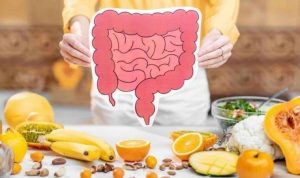Introduction Your gut is a busy place. Trillions of microbes live there. This community—known as the gut microbiome—helps digest food, fight germs, and shape mood. In 2025, more research shows that gut health underpins many parts of our well-being. Poor gut balance links to heart health issues, anxiety, and even skin problems. At the same
Introduction
Your gut is a busy place. Trillions of microbes live there. This community—known as the gut microbiome—helps digest food, fight germs, and shape mood. In 2025, more research shows that gut health underpins many parts of our well-being. Poor gut balance links to heart health issues, anxiety, and even skin problems. At the same time, new tools let us track our digestive health in real time. In this article, we explain what gut health means. We explore why it matters more than ever in 2025. We also share tips, foods, and habits to keep your gut happy.
What Is Gut Health?
Gut health refers to how well your digestive system works. It covers the balance of bacteria, viruses, and fungi in your intestines. A healthy gut breaks down food, absorbs nutrients, and keeps harmful bugs in check.
When this balance is strong, you enjoy healthy digestion and regular bowel movements. When it’s off, you may feel bloated, tired, or face stomach aches. Long term, imbalances can lead to leaky gut, where toxins cross the gut barrier into your blood. This can spark inflammation throughout your body.
Good gut health also means a strong immune defense. Nearly 70 percent of immune cells live in your gut. A well-balanced gut microbiome helps train these cells to fight real threats without overreacting. That explains why gut health links to allergies, asthma, and even autoimmune issues.
Why Is Gut Health More Important in 2025?
Modern life tests our guts in new ways. Many of us eat more processed foods and sugar. We also use more antibiotics and live with higher stress. All these factors can harm our gut microbiome.
In 2025, researchers spot clear ties between gut imbalances and common diseases. Studies connect poor digestive health to obesity, diabetes, and mood disorders. This means that caring to lose weight is now a top health priority.
At the same time, more tools are available. You can test your gut bacteria at home with mail-in kits. You can track gut markers via smart devices. These insights help you make changes early. For the first time, people can spot imbalances before they cause real harm.
Finally, the gut-brain axis gains attention. This two-way street means your gut and brain talk constantly. In 2025, more people treat anxiety or low mood by boosting their gut health. They add probiotics to calm stress and sharpen focus.
How Does the Gut Microbiome Affect Your Body?

Image by: Yandex.com
The gut microbiome plays many roles. First, it helps break down foods you can’t digest alone. These include fibers that feed good bacteria. In return, bacteria make vitamins like B12 and K2.
Fourth, the gut lines forms a barrier against toxins. A tight barrier keeps pathogens out of your bloodstream. When this barrier loosens, you get leaky gut. That can cause fatigue, joint pain, and food sensitivities.
All these paths show that digestive health matters far beyond your stomach. A healthy gut supports a healthy body and mind.
What Foods Support Gut Health?

Image by: Yandex.com
Eating the right foods feeds your gut microbiome. Here are top picks for 2025:
Yogurt and kefir are natural probiotics. They contain live cultures that add good bacteria.
Kimchi, sauerkraut, and miso are fermented foods. They offer diverse microbes and unique flavors.
Whole grains, beans, and lentils deliver dietary fiber. Fiber feeds good bacteria and helps you feel full.
Onions, garlic, and asparagus are rich in prebiotics. These fibers feed probiotics in your gut.
Blueberries and apples contain pectin. This fiber helps bacteria grow and reduces inflammation.
Olive oil and nuts supply healthy fats that protect your gut lining.
Dark chocolate with at least 70 percent cocoa offers flavonoids. These antioxidants support gut balance.
Green tea has polyphenols. They help control growth of harmful bacteria.
To get the best mix, include a colorful variety of fruits and vegetables every day. Focus on whole, unprocessed foods.
What Lifestyle Habits Boost Digestive Health?

Image by: Yandex.com
Besides diet, your daily habits shape gut balance.
Move your body. Exercise helps food move through your gut. It also raises levels of good bacteria. Aim for 30 minutes of moderate exercise most days.
Manage stress. Chronic stress can harm your gut barrier. Practice deep breathing, yoga, or meditation daily. Even short breaks help.
Get enough sleep. Poor sleep disrupts your microbiome and raises inflammation. Strive for 7–9 hours per night on a regular schedule.
Drink water. Proper hydration helps digestion and softens stool. Carry a reusable bottle and sip throughout the day.
Wash hands often. This prevents infection and reduces the need for antibiotics that harm gut flora.
Common Gut Health Challenges in 2025 and How to Overcome Them

Image by: Yandex.com
Even with good habits, many face gut issues today.
Antibiotic overuse can kill both bad and good bacteria. If you need antibiotics, add probiotics during and after your treatment.
Processed foods strip out fiber and add sugars. Swap refined snacks for whole-food alternatives. Try veggie sticks with hummus instead of chips.
Leaky gut appears when your gut barrier weakens. Support healing with bone broth, zinc, and glutamine supplements. Always check with a health pro first.
Irritable Bowel Syndrome (IBS) affects many people. Low-FODMAP diets can help reduce bloating and pain. Work with a dietitian to identify trigger foods.
Stress-related issues like heartburn or stomach pain rise under today’s pressure. Use mindful breaks, gentle stretches, or short walks to calm your gut.
Future Trends in Gut Health for 2025 and Beyond

Image by: Yandex.com
Looking ahead, gut health will gain more tools.
Personalized nutrition plans will use your gut data to guide meals. Your food plan may change month to month.
Next-gen probiotics will target specific health goals. You may choose strains for sleep, immunity, or mood.
Medical research will blend gut science with genetics. This could lead to microbe-based medicines for chronic disease.
Key Gut-Friendly Foods Table
| Food Item | Category | Benefit |
|---|---|---|
| Yogurt | Probiotic | Adds live cultures to balance gut |
| Kimchi | Fermented Foods | Provides diverse healthy microbes |
| Oats | Dietary Fiber | Feeds good bacteria for energy |
| Garlic | Prebiotic | Stimulates growth of good bacteria |
| Blueberries | Antioxidant Fiber | Reduces gut inflammation |
| Olive Oil | Healthy Fat | Protects gut lining |
| Green Tea | Polyphenols | Controls harmful bacteria growth |
Conclusion
In 2025, gut health stands at the heart of overall wellness. A balanced gut microbiome supports immunity, mood, and digestion. By eating probiotics, prebiotics, and fiber-rich foods, you nurture your gut.
Healthy habits—like exercise, stress care, and sleep—keep your gut resilient. When challenges like leaky gut or antibiotic use arise, targeted fixes can restore balance. New trends promise personalized gut plans and advanced supplements. Investing in your gut now means better health today and tomorrow.




















